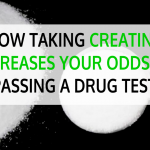
Poppers, also known as alkyl nitrites, are a type of recreational drug that is commonly used for their euphoric and sexual enhancement effects. While they are illegal in the United States and Canada, their use is legal in some other western countries. When it comes to drug testing, it is important to know whether poppers will show up in the results. This article will explore the different types of drug tests commonly used and whether they screen for poppers. It will also discuss the legality and health concerns associated with these substances.
Key Takeaways
- Nitrites, commonly referred to as poppers, are a type of recreational drug used for their euphoric effects.
- Poppers are illegal in the United States and Canada, but legal in some other countries.
- Drug tests may vary in their screening for poppers.
- Poppers are not typically tested for in employment, sports, probation and parole, or military drug tests.
- Using poppers can have severe health risks and should be avoided.
What Are Poppers?
Poppers are chemicals in the alkyl nitrite family, including substances like amyl nitrite, isopropyl nitrite, isobutyl nitrite, and butyl nitrite. These substances were originally developed for medicinal purposes but gained popularity as recreational drugs in the 1960s. The use of amyl nitrite in particular led to health concerns, prompting the United States to make it illegal without a prescription. Other types of alkyl nitrites were later outlawed as well. Poppers are commonly sold under different names and are often disguised as products like air fresheners or solvents. They are known for their effects of relaxation and euphoria, but they also carry significant risks and dangers.
“Poppers are chemicals in the alkyl nitrite family, including substances like amyl nitrite, isopropyl nitrite, isobutyl nitrite, and butyl nitrite.”
“The use of amyl nitrite in particular led to health concerns, prompting the United States to make it illegal without a prescription.”
Poppers are a type of recreational drug that is commonly used for their euphoric and sexual enhancement effects. They are known for their effects of relaxation and euphoria, making them popular among certain social groups. However, it is important to note that the use of poppers carries significant risks and dangers. The chemicals in poppers can cause damage to the skin, difficulty breathing, extreme drops in blood pressure, seizures, heart arrhythmia, coma, and even death. Poppers can also lead to various side effects and long-term health risks, such as unsteady gait, loss of coordination, rash around the mouth and nose, nasal and oral tissue inflammation, nosebleeds, fatigue, intense headache, vomiting, confusion, memory loss, delirium, hallucinations, paranoid delusions, violent behavior, high blood pressure, rapid heartbeat, and organ damage.
Types of Drug Tests
Drug tests are commonly used in various contexts such as employment, sports, probation and parole, and military settings. Different types of drug tests are utilized depending on the specific requirements and regulations. Understanding the various drug testing procedures is important to determine whether poppers are screened for.
Employment Drug Testing
Employment drug testing is a common practice used by employers to ensure a safe and drug-free workplace. The most frequently performed drug tests in this context are the 5-panel and 10-panel tests. The 5-panel test screens for opiates, cocaine, marijuana, amphetamines and methamphetamine, and PCP. The 10-panel test includes additional substances such as benzodiazepines, barbiturates, methadone, propoxyphene, and methaqualone. However, it is important to note that poppers are not typically included in the list of substances tested for on employment drug tests.
Sports Drug Testing
Athletes participating in professional sports are subject to regular drug testing to ensure fair competition. The World Anti-Doping Agency (WADA) maintains a list of banned substances, but alkyl nitrites, including poppers, are not included in the list. Therefore, poppers are not typically tested for under anti-doping rules in sports.
Probation and Parole Drug Testing
Individuals under probation or parole supervision may be required to undergo drug testing as a condition of their release. The drug tests used in these cases are similar to employment drug tests and may include 5-panel, 10-panel, or extended-panel tests. Poppers are generally not included in the substances tested for on these drug tests.
| Types of Drug Tests | Substances Tested |
|---|---|
| Employment Drug Testing | Opiates, cocaine, marijuana, amphetamines and methamphetamine, PCP |
| Sports Drug Testing | Varies depending on the sport and organization, poppers not typically tested for |
| Probation and Parole Drug Testing | Similar to employment drug tests, poppers not typically tested for |
| Military Drug Testing | Varies depending on the branch of the military, poppers not specifically tested for |
Employment Drug Testing
When it comes to employment drug testing, most employers use either a 5-panel or 10-panel drug test. The 5-panel drug test screens for the presence of opiates, cocaine, marijuana, amphetamines and methamphetamine, and PCP. On the other hand, the 10-panel drug test includes additional substances such as benzodiazepines, barbiturates, methadone, propoxyphene, and methaqualone.
However, it is important to note that poppers are not included in the list of substances tested for on these employment drug tests. Therefore, if you are asked to take a drug test for employment purposes, rest assured that poppers will not be screened for.
Employment drug testing aims to ensure a safe and drug-free work environment. While poppers may not be included in the standard drug tests, it is essential to consider the legality and health risks associated with their use. It is always advisable to prioritize your health and safety by making informed decisions about substance use and seeking professional help if needed.
Table: Substances Tested in Employment Drug Testing
| Substances Tested | 5-Panel Drug Test | 10-Panel Drug Test |
|---|---|---|
| Opiates | ✔ | ✔ |
| Cocaine | ✔ | ✔ |
| Marijuana | ✔ | ✔ |
| Amphetamines and Methamphetamine | ✔ | ✔ |
| PCP | ✔ | ✔ |
| Benzodiazepines | ✔ | |
| Barbiturates | ✔ | |
| Methadone | ✔ | |
| Propoxyphene | ✔ | |
| Methaqualone | ✔ |
Sports Drug Testing
When it comes to participating in sports competitions where drug testing is carried out, it is important to understand which substances are screened for. The World Anti-Doping Agency (WADA) maintains a comprehensive list of banned substances for athletes. However, alkyl nitrites, including poppers, are not included on this list. Therefore, poppers will not be tested for under anti-doping rules in sports drug testing.
While the use of poppers may not result in disqualification from sports competitions, it is essential to note that the use of these substances is still illegal and can have serious health risks and dangers.
“Poppers will not be tested for under anti-doping rules.”
It is crucial for athletes to prioritize their health and safety by making informed decisions about substance use and avoiding the use of poppers. Engaging in fair competition while maintaining good physical and mental well-being should be the focus for athletes.

Table: Banned Substances under WADA Anti-Doping Rules
| Substance | Status |
|---|---|
| Anabolic Agents | Banned |
| Peptide Hormones, Growth Factors, Related Substances, and Mimetics | Banned |
| Diuretics and Masking Agents | Banned |
| Stimulants | Banned |
| Narcotics | Banned |
| Cannabinoids | Banned |
| Glucocorticoids | Banned in certain circumstances |
Probation and Parole Drug Testing
Individuals on probation or parole are often required to undergo drug testing as a condition of their release. The drug tests used in these cases typically include a 5-panel, 10-panel, or extended-panel test. These tests aim to detect the presence of specific substances in an individual’s system. However, it is important to note that poppers are not included in the list of substances tested for on these drug tests.
Both the 5-panel and 10-panel drug tests focus on commonly abused substances such as opiates, cocaine, marijuana, amphetamines and methamphetamine, and PCP. The extended-panel test goes a step further and may include additional substances like benzodiazepines, barbiturates, methadone, propoxyphene, and methaqualone. Poppers, being alkyl nitrites, do not fall within the scope of these panels and are therefore not screened for in probation and parole drug tests.
While poppers may not be directly tested for, it is essential to remember that the use of these substances is still illegal. Possessing or using illegal substances, including poppers, can result in legal consequences, such as a violation of parole or probation conditions. It is crucial for individuals on probation or parole to adhere to their specific drug testing requirements and to abstain from using any illicit substances.

Table: Comparison of Drug Testing Panels
| Drug Testing Panel | Substances Tested |
|---|---|
| 5-Panel | Opiates, cocaine, marijuana, amphetamines and methamphetamine, PCP |
| 10-Panel | Opiates, cocaine, marijuana, amphetamines and methamphetamine, PCP, benzodiazepines, barbiturates, methadone, propoxyphene, methaqualone |
| Extended-Panel | In addition to substances tested on the 10-panel, further substances may be included based on specific testing requirements |
Military Drug Testing
Individuals entering the military are subject to rigorous drug testing measures to ensure the safety and integrity of the armed forces. The process begins at the Military Entrance Processing Station, where applicants must pass a drug test before attending boot camp. Once enlisted, members of the military can expect to undergo regular drug testing, including annual tests, random tests conducted three times a year, and tests based on probable cause.
The substances tested for in military drug tests are comprehensive and include a wide range of illicit drugs and controlled substances. Some of the substances screened for include amphetamines and methamphetamine, designer amphetamines, benzodiazepines, cannabinoids (marijuana), synthetic cannabinoids, cocaine metabolites, morphine, codeine, heroin, oxycodone, oxymorphone, hydrocodone, hydromorphone, fentanyl, and norfentanyl. While poppers are not specifically tested for, it is important to note that possessing or using illegal substances, including poppers, can lead to disciplinary proceedings.
| Substance Tested | Presence in Military Drug Tests |
|---|---|
| Amphetamines and Methamphetamine | Tested |
| Designer Amphetamines | Tested |
| Benzodiazepines | Tested |
| Cannabinoids (Marijuana) | Tested |
| Synthetic Cannabinoids | Tested |
| Cocaine Metabolites | Tested |
| Morphine | Tested |
| Codeine | Tested |
| Heroin | Tested |
| Oxycodone | Tested |
| Oxymorphone | Tested |
| Hydrocodone | Tested |
| Hydromorphone | Tested |
| Fentanyl | Tested |
| Norfentanyl | Tested |
It is crucial for military personnel to adhere to strict guidelines and avoid the use of illegal substances, including poppers. Violations can result in disciplinary action, which may include discharge from the military, loss of benefits, or even legal consequences.
Legality of Poppers
Poppers, also known as alkyl nitrites, have varying legal statuses across different countries. While they are illegal in the United States, there are legal loopholes that allow their sale as long as they are labeled for other purposes such as air fresheners or solvents. It is important to note that even though poppers may be legally sold in some countries, their use can still carry health risks and potential legal consequences.
Table: Legal Status of Poppers in Different Countries
| Country | Legal Status |
|---|---|
| United States | Illegal for human consumption |
| Canada | Illegal |
| United Kingdom | Legal |
| Australia | Illegal |
| Germany | Legal |

Health Concerns and Dangers
When it comes to poppers, it is essential to understand the severe health effects and risks associated with their use. These recreational drugs contain dangerous chemicals that can have detrimental effects on the body. Poppers are classified as dangerous drugs by regulatory authorities due to their caustic nature and potential to cause harm.
The side effects of using poppers can be alarming. They may include unsteady gait, loss of coordination, rash around the mouth and nose, nasal and oral tissue inflammation, nosebleeds, fatigue, intense headaches, vomiting, confusion, memory loss, delirium, hallucinations, paranoid delusions, and even violent behavior. Poppers can also lead to high blood pressure, rapid heartbeat, and damage to vital organs such as the liver, kidneys, and brain.
It is crucial to treat the use of poppers with utmost caution and prioritize safety. The potential for severe health effects is a significant concern, and individuals should avoid using these substances altogether. Seeking professional help and guidance is important to address any issues related to substance use and ensure the well-being and health of individuals.
| Health Effects | Risks |
|---|---|
| Skin damage | Caustic chemicals can cause burns and irritation |
| Difficulty breathing | Poppers can lead to respiratory distress and shortness of breath |
| Extreme drops in blood pressure | Can lead to dizziness, fainting, and cardiovascular complications |
| Decreases in blood oxygen levels | Can result in hypoxia and damage to vital organs |
| Seizures and heart arrhythmia | Popper use can cause abnormal electrical activity in the brain and heart |
| Coma and death | In severe cases, poppers can lead to a state of unconsciousness and even fatality |
It is crucial to raise awareness about the safety concerns and risks associated with poppers. By understanding the potential health effects, individuals can make informed decisions and prioritize their well-being. The use of poppers should be avoided, and seeking professional help is essential for those struggling with substance use or related issues.
Conclusion
In summary, the use of poppers, also known as alkyl nitrites, is a popular recreational activity that carries significant risks and dangers. While poppers are illegal in the United States, their legality varies in other countries. When it comes to drug testing, poppers are generally not screened for in standard tests conducted for employment, sports, probation and parole, or military purposes.
However, it is important to note that the use of poppers is still illegal and can lead to legal consequences. Engaging in the use, sale, purchase, possession, or distribution of poppers without a prescription is an offense in most jurisdictions. It is crucial to prioritize your own health and safety by making informed decisions about substance use and seeking professional help if needed.
The health risks associated with poppers are severe and can have detrimental effects on various body systems. From skin damage to respiratory difficulties, drops in blood pressure, and even death, the dangers of poppers should not be underestimated. It is vital to be aware of the potential side effects and long-term risks associated with popper use.
Ultimately, we strongly advise against the use of poppers due to their illegality, health risks, and potential harm. Taking precautions to avoid poppers can help safeguard your well-being and ensure compliance with the law. Make informed choices, prioritize your health, and seek support when needed.
FAQ
Do poppers appear in drug tests?
No, poppers are not typically screened for in standard drug tests conducted for employment, sports, probation and parole, or military purposes. However, it is important to note that the use of poppers is still illegal and can lead to legal consequences.
What are poppers?
Poppers are chemicals in the alkyl nitrite family, including substances like amyl nitrite, isopropyl nitrite, isobutyl nitrite, and butyl nitrite. Originally developed for medicinal purposes, poppers gained popularity as recreational drugs in the 1960s. They are known for their effects of relaxation and euphoria but also carry significant health risks and dangers.
What types of drug tests are commonly used?
Drug tests used in various contexts include employment drug testing, sports drug testing, probation and parole drug testing, and military drug testing.
Are poppers tested for in employment drug tests?
No, poppers are not tested for in employment drug tests. These tests typically screen for substances such as opiates, cocaine, marijuana, amphetamines and methamphetamine, and PCP.
Are poppers tested for in sports drug tests?
No, poppers are not tested for in sports drug tests conducted under anti-doping rules. The World Anti-Doping Agency (WADA) does not include alkyl nitrites, including poppers, on the list of banned substances for athletes.
Are poppers tested for in probation and parole drug tests?
No, poppers are not tested for in standard probation and parole drug tests. These tests typically screen for substances such as opiates, cocaine, marijuana, amphetamines and methamphetamine, and PCP.
Are poppers tested for in military drug tests?
Poppers are not specifically tested for in military drug tests. However, possessing or using illegal substances, including poppers, can result in disciplinary proceedings.
What is the legality of poppers?
In the United States, poppers are illegal for human consumption, and their sale, purchase, possession, and use without a prescription are offenses. The legality of poppers varies in other countries, with some permitting certain types and others banning them altogether.
What are the health concerns and dangers associated with poppers?
Poppers are considered dangerous drugs and can cause severe health effects and complications. These include damage to the skin, difficulty breathing, extreme drops in blood pressure, seizures, heart arrhythmia, coma, and even death. Poppers also carry various side effects and long-term health risks, such as loss of coordination, rash around the mouth and nose, nasal and oral tissue inflammation, nosebleeds, intense headache, confusion, memory loss, hallucinations, paranoid delusions, violent behavior, high blood pressure, and damage to organs like the liver, kidneys, and brain.
What should I do if I have concerns about poppers or substance use?
It is important to prioritize your health and safety by making informed decisions about substance use. If you have concerns or are struggling with substance use, it is recommended to seek professional help from healthcare professionals or addiction specialists.















